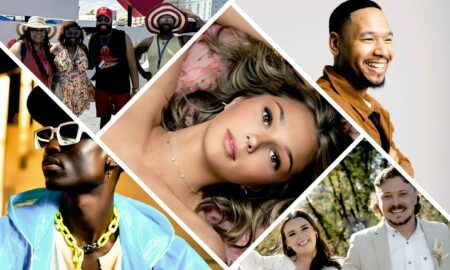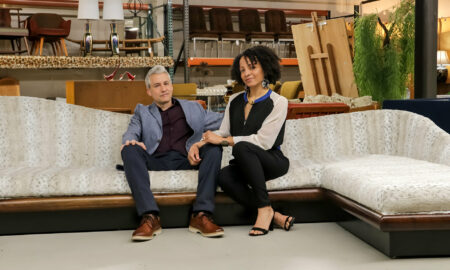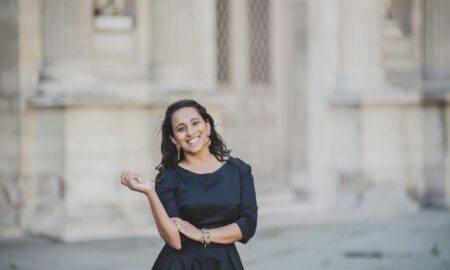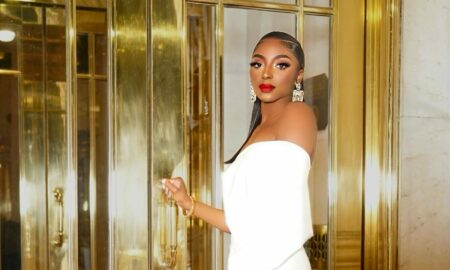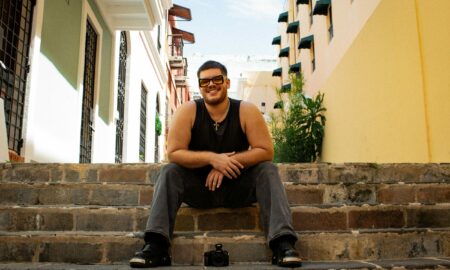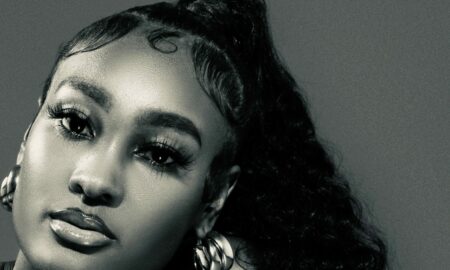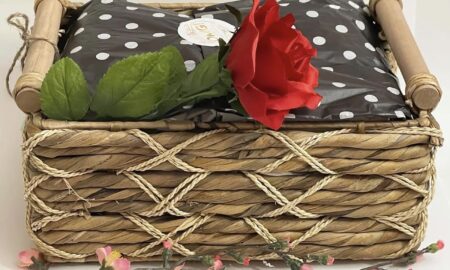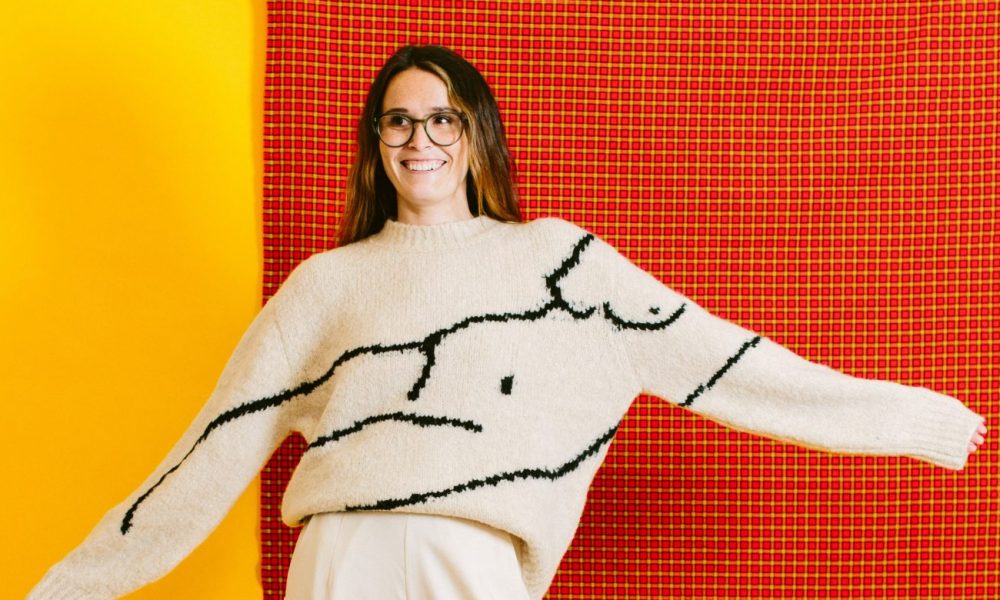

Today we’d like to introduce you to Lacey Woodroof.
Hi Lacey, thanks for joining us today. We’d love for you to start by introducing yourself.
I never imagined myself pursuing a career in fashion. I don’t have any education for it, and I didn’t grow up fantasizing about being a model or some such public figure that gets to wear avant-garde designs and haute couture. In fact, my degree is in Spanish and International Trade, and my career background is in finance. Working in finance taught me a lot about myself, and it led to a lot of realizations about the world and what part I wanted to play in it. basic. it was founded on a firm belief in basic human rights and a desire for a curated spot to buy ethically-made staple garments. When the idea for basic. I came about, I was still a financial advisor and learning a lot about the balance sheets of large international corporations.
I was in my late 20s and frustrated with women’s “professional” workwear— I was supposed to look a certain part, but I hated knowing I was buying the same ill-fitting, poorly constructed pants year after year just to dress for an expectation (because those clothes certainly were made to express personality). After looking at the stock prices of one of the companies from whom I’d purchased some such garments one day, I had this moment of clarity where I thought, “Wait a second. How in the world are they selling $12 t-shirts and reporting billions of dollars in profit?” I fell down a rabbit hole from whence I have never returned. The margins those businesses were achieving are accomplished by cutting costs elsewhere, and the costs being cut were often egregious.
As I dove into the fashion underbelly, I started learning about the working environments and perpetual abuses of garment workers in fast fashion factories, and I found myself wanting to tell more people about what I’d learned. So that’s what we did. Because #bills, basic. I started as a side-hustle website + popup shop while I still worked my 8 to 5 as an advisor. After a couple of years doing both, I left my career to press into basic. Full-time and haven’t looked back. With the help of some incredible people (especially my spouse Tom, my cousin Maggie, our creative unicorn Gabby, and my INFJ-twin Courtney), basic. Has grown into the beautiful community she is today. We now have a brick + mortar where we share space with Honeycreeper Chocolate (another business that sources strictly ethically-made products), one permanent pop-up inside of Botanica Plantshop’s second storefront, an online web store, and a secondhand/thrift shop called back2basic. For us, success looks like educating + empowering our community about the choices they make as consumers and creating a safe + welcoming space for everyone. As long as we’re doing that, we’re grateful for every day we get to do what we love.
We all face challenges, but looking back would you describe it as a relatively smooth road?
I don’t think many folks have a completely smooth road in anything. The bends and curves and sharp turns are what get us to where we need to go— and they’re what help shape us along the way. I decided very early on in basic’s lifetime that she would be more than just a business. Because of the knowledge I’d gained and the veils finance had lifted, I knew I wanted basic. to have a voice and be a platform for change. To be a business owner in the South actively promoting your business as a proponent of progress, though, can be a bit off-putting to some of our would-be customers.
So while our growth has been significantly slower than we’d like, the silver lining of that has been that it’s required us to be more creative with how and where we do business, and we’ve opened up whole new channels of customer interaction as a result of it. Growing a business is the most challenging thing I’ve ever done, but it’s also stretched my capacity in ways I could never have predicted, and I’m thankful for the personal growth it’s fostered as well. There’s also the small thing of COVID-19 and the clusterfudge that has been the past 13 months, but that’s a big ole bump in everyone’s road. Upwards and onwards to a better tomorrow, folks!
Alright, so let’s switch gears a bit and talk business. What should we know?
Our 3-gal team at basic. Sources and curates ethically-made garments from emerging and established independent designers. We only partner with brands that disclose their production processes and work within transparent supply chains because we want to know (and we want you to know, too!) #whomadeourclothes. As a result, we’ve been able to develop enduring relationships with designers who are really good humans producing masterfully made clothing, and we don’t hate it.
In general, businesses make more money + generate larger carbon footprints than individuals, so they’ve got as much or more responsibility to give back to the world around them. Because basic believes that business should be better, we donate $5 of every sale from both basic. + back2basic. to the southern poverty law center + human rights watch in support of human rights and labor equality. Basic. It stands out from other brands because we’re more human-centric than product-centric. The clothes are beautiful, of course, but more than that, everyone feels seen at basic., and that’s different than a lot of other (particularly white-owned) businesses like ours. We find that people absorb and process information better when they’re comfortable in their environment, so we try to meet folks where they are to educate them about the power of their purchases. Regardless of whether you engage with us via the website, social, or stopping by our shops— we hope you leave our space feeling safe, happy, and a little more empowered.
What was your favorite childhood memory?
My mom’s mom died when I was seven, but she was my best friend until the day she died. She exposed me to culture and art and cultivated a quiet curiosity for unconventional knowledge that gave me the freedom to be different and feel good about it. During the week, Nana often kept me while my parents worked. Because she also served as a volunteer in the Children’s Museum at the Birmingham Museum of Art, I often tagged along. We’d walk the hallways and talk about the paintings and sculptures, and I never remember feeling more peace in my life than when I was with her there. Not long before she died, the Museum did a major renovation and redid their grounds as well. Once it reopened, Nana was eager to take me back down to see the new spaces. As she led me into the Memory Garden, she got visibly excited. Holding my hand, she pulled me over to a shallow pool finished with inlaid mosaic bricks. She leaned down and pointed to one and said, “That’s our brick, honey. Yours and mine. I bought it so we can be here together forever.”
Contact Info:
- Email: contact@abasicshop.com
- Website: www.abasicshop.com
- Instagram: instagram.com/abasicshop
- Facebook: facebook.com/abasicshop
- Other: pinterest.com/abasicshop









 Image Credits:
Image Credits:
Laura Walker (@laurajettwalker)













